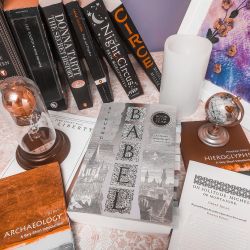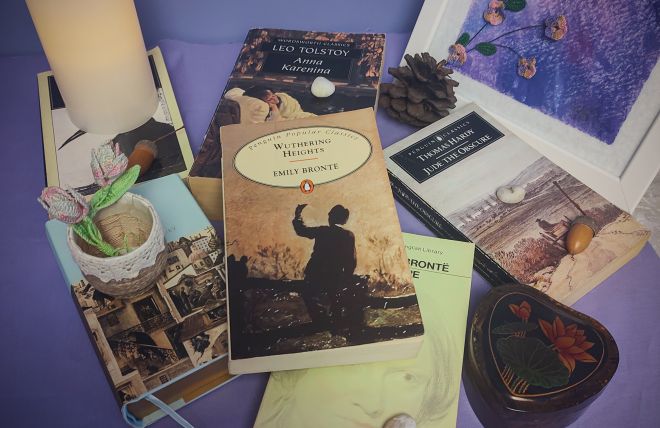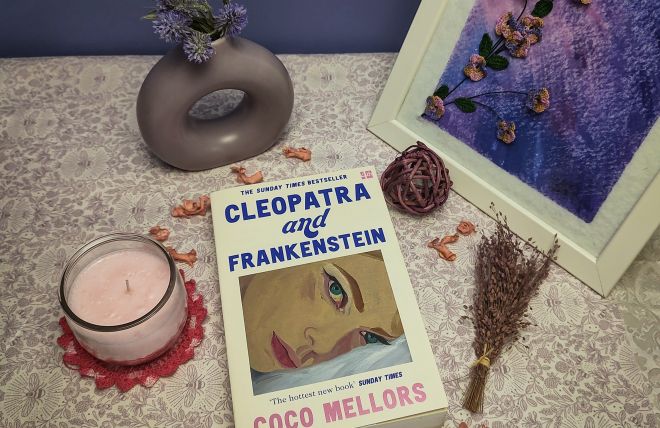“Language was just difference. A thousand different ways of seeing, of moving through the world. No, a thousand worlds within one. And translation, a necessary endeavour however futile, to move between them.”
R.F. Kuang’s Babel was a brilliantly impactful, decolonial piece of literature about voice, resistance, and the power of language. The story follows our protagonist Robin Swift, a young boy from Canton who gets saved from a life-threatening disease by the enigmatic Professor Lovell. Under his guardianship, we watch as Robin grows up and begins his studies at the University of Oxford’s Royal Institute of Translation (also known as Babel). Spellbound by Oxford’s alluring appeal Robin goes onto to meet wonderful new friends and begins to make Oxford his home. But as he learns some new secrets that shake all of the foundations he’s built, Robin will be left to make choices that will forever alter his fate… And that of a whole empire.
Language is at the heart of this novel, it is what fuels the magic system, and it very much explores how language influences culture and diversifies human experience. It is a compelling device used to demonstrate how indoctrination and colonial exploitation occurs. While at times I thought Kuang’s references were slightly overdone and caused pacing issues for the plot, there were many times where her references were so powerful, showing how different languages use words to express complex thoughts and emotions. The author also highlighted how the empire used other cultures to benefit itself, in this instance using others' language to contribute to its increase in wealth and power while simultaneously using it as a tool to destabilise or cause conflict for the people it took the language from.
Babel is also a novel about the illusion of academia, the glamourous mask it wears while behind closed doors being an active participant in imperial violence. One of Babel’s biggest strengths was the author's ability to really understand the varied and often antithetical perspectives of her characters. From the young student who needs to break through that illusion, to the coloniser with a superiority complex, to the person that will stop doing the right thing when it ceases to serve their own ambitions, Kuang got to the root of each character’s mindset. The dialogue between characters was fascinating and extremely well done.
Lastly, Babel is a novel about resistance. It explores the pain, the tragedy, the sacrifice and the impact of defiance, and whether it is worth fighting for. What I love about Babel is that it can lead the reader to reflect on our current world with ease. It made me think of all the revolutions throughout history and how they required violence and sacrifice to make change happen. It made me think of rhetoric and how it is often used as a tool to twist narratives and to divide. And of course, it made me think about the impacts of colonialism on the world to this very day.
In my opinion there are some weaknesses, for example, I wished Victoire’s character was more prominent in the novel, so we empathised more with her at the end. Furthermore, while references to other instances of colonial impact were made, I wish they were more actively explored through stronger motivations to cause change in other places by the secondary characters.
But overall, Babel is a courageous challenge to its readers, and its scope and emotional impact had a great payoff. In the midst of decolonialisation, Babel inserts itself as a significant novel that uses fantasy as a medium to explore a heavy history in a way that is accessible and impactful. Definitely recommend!


